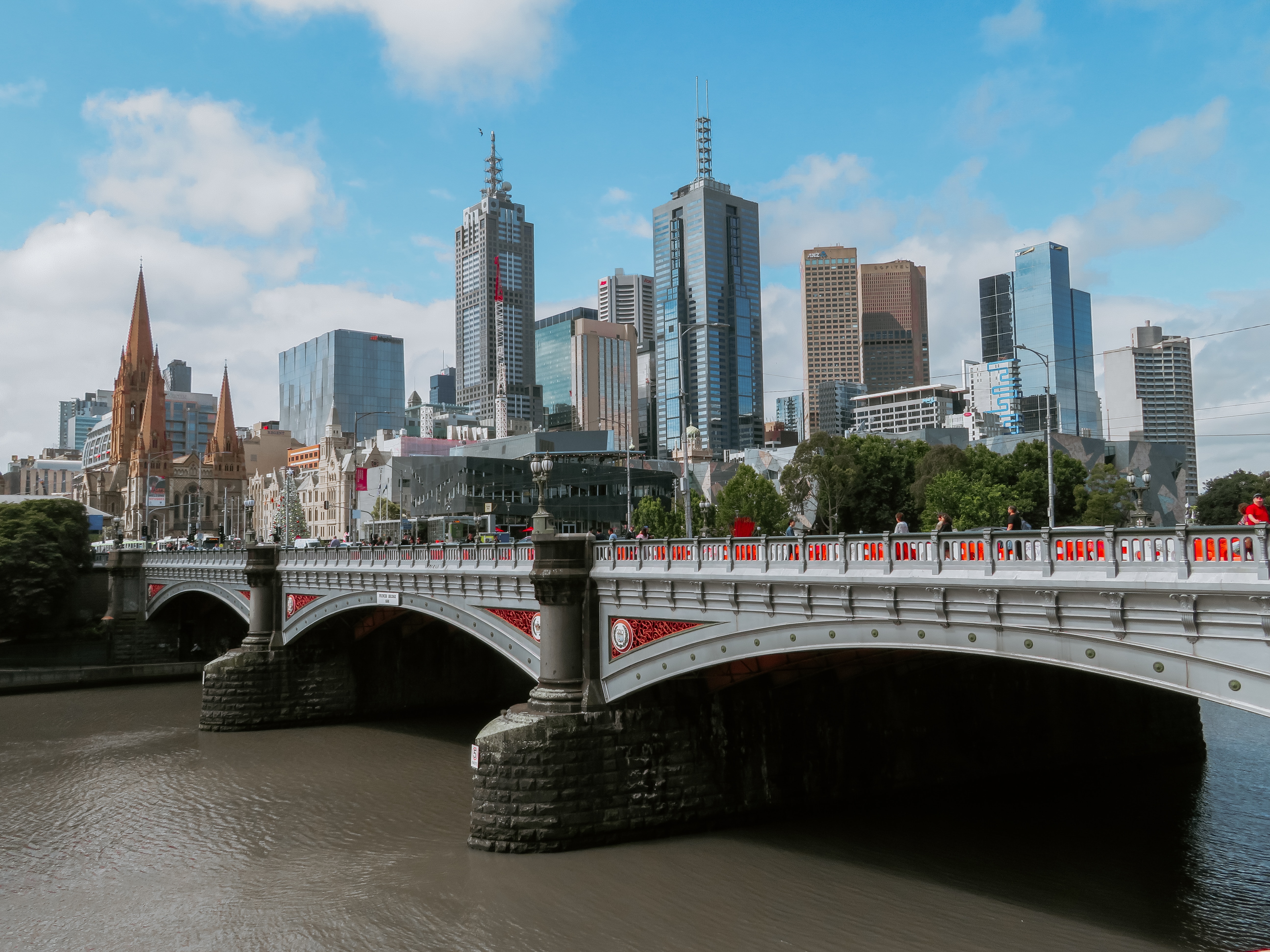If you’re planning an epic trip to visit Australia, make sure to include Melbourne in your itinerary! This iconic down-under city is known for its stunning architecture and city streets, art culture, and for brewing a world-class cup of coffee. But whether you’re visiting or an Aussie local, you might be wondering: “How safe is Melbourne tap water?”
TL;DR: Is Melbourne, Australia’s tap water safe to drink?
- Melbourne has fairly good tap water that is technically safe to drink since it has to adhere to Australia’s Drinking Water Guidelines prior to its distribution to your tap.
- However, you may still run into issues with your Melbourne tap water like lead leaching, contamination, and pesticides that aren’t as well-addressed by government standards as some health authorities might like.
- Rather than drinking from a plastic water bottle that likely contains microplastics, filter your tap water through a LARQ filter first to ensure a safer, cleaner drink of water.
Tap Water Quality Issues in Melbourne, Australia
The drinking water supply in Melbourne is managed by Melbourne Water, which distributes drinking water throughout Melbourne’s three districts: City West Water, Yarra Valley Water, and South East Water.
Melbourne’s water comes primarily from protected catchments in forested areas, national parks, state forests, and the Yarra Ranges. Because these catchments are protected, the water is naturally filtered and minimally treated for disinfection purposes. Then, before the water is distributed, the water distribution companies test it at 314 different monitoring stations to ensure that it adheres to all Australian Drinking Water Guidelines.
Due to this combination of natural filtration and strict monitoring, Australia actually has some of the best tap water in the world. Even still, like many cities throughout the world, some quality issues can still remain before the tap water finally reaches the faucet.
Pesticides
The presence of pesticides like atrazine is one of the most concerning potential issues in Australia’s water supply.
Atrazine is a chemical weed killer that is commonly used to keep weeds under control and prevent them from damaging local crops, but researchers have also begun to find evidence that it may also be linked to issues with male fertility. The Australian government does monitor the presence of atrazine and other pesticides in tap water, but unfortunately, those current standards may not be enough. For example, a study found that the presence of atrazine at a level that the government considers “safe” appeared to reduce sperm counts in mice, and other researchers discovered that low levels of atrazine can turn male frogs into hermaphrodites.
Lead contamination
Lead leaching is another major water quality issue that plagues cities and towns throughout the world. Lead metal was a popular building material for water pipes before the 20th century until researchers discovered that the metal was actually toxic and was linked to various health concerns like neurological damage. Lead contamination is especially concerning for infants and young children, and many health authorities agree that there is no known safe level of lead consumption in drinking water.
The good news: the use of lead to build water pipes was actually much less common in Australia than in other countries, which means that the dangers of lead leaching are generally less prevalent. In addition, Australia prioritizes the removal of any lead from its tap water before it leaves the purification process. Unfortunately, this still doesn’t mean that all buildings in Melbourne are guaranteed to be safe from lead. According to Lead Advisory Services Australia, some areas in Melbourne used lead to build water pipes up until the 1930s. What’s worse, lead soldering was used on water pipes until as recently as 1989.
This means that some homes and older buildings are still at risk for lead contamination in the drinking water even though the water distribution companies take special care to ensure that lead levels adhere to Australian health standards. In fact, as recently as 2018, an Australian committee called enHealth issued an alert that Australian households should run their taps for at least 30 seconds in the morning to clear out potential lead in drinking water.
Water contamination
Finally, it’s also worth noting that the natural filtration systems in place that keep the drinking water in Melbourne safe can also be compromised by major weather events like storms.
For example, in 2020 and 2021, Melbourne communities were instructed by Yarra Valley Water to boil their water prior to drinking due to the failure of equipment used to decontaminate the water supply. Some communities were even warned that boiling alone wasn’t enough to remove those contaminants and that residents should not drink the tap water at all. While this is a rare occurrence, it’s worth keeping in mind if you’re going to be spending any length of time in Melbourne during the stormier seasons.
The bottom line: It’s a good idea to filter your Melbourne tap water before you drink it or use it for cooking.
Melbourne’s tap water is generally considered a high-quality water source that has to adhere to safety standards set by the Australian Department Of Health. Unfortunately, this isn’t always enough to ensure that you’re getting the cleanest drink every time you drink from the tap. Most specifically:
- Australia’s legal standards for chemicals like the pesticide atrazine may not always align with what the latest research has to say on potential health risks
- Old buildings may still have lead solders on pipes, which can potentially cause lead leaching into your water supply
- Contamination from infrastructure failure due to storms and other natural weather events can compromise your water’s safety
Because of this, it’s always a good idea to filter your water before you drink it! Using a pitcher filter like Pitcher PureVis can remove some of the most common contaminants found lurking in tap water, making a great cup of water that much cleaner and safer. It’s a must while you’re exploring the land down under!
